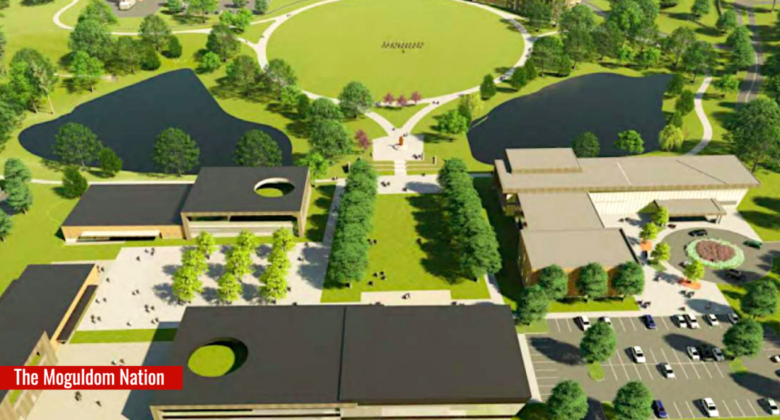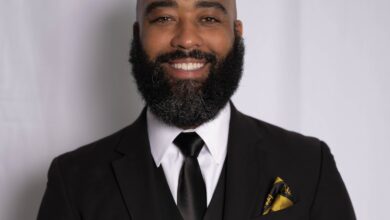More Than 60 Spelman Faculty Sign Letter Condemning $90 Million Dollar ‘Cop City’

More than 60 members of the faculty at Spelman College have signed a letter condemning the planned Atlanta Public Safety Training Center, which has been dubbed ‘Cop City’ by critics. They are standing in solidarity with students from the Atlanta University Center Consortium and other activists and residents who oppose the center.
“The undersigned members of the Spelman College faculty join our students, our colleagues at Morehouse College, and community activists to publicly denounce Atlanta’s initiative to build a $90 million police training facility, popularly known as ‘Cop City,’” the letter opens.
“The potential site for Cop City is the Old Atlanta Prison Farm, which was once a slave labor camp and, before that, the Weelaunee Forest of the Muscogee Creek people. The violent histories of settler colonialism and slavery abound in this project which will contribute to militarization, deforestation and gentrification, making the lives of Atlanta’s Black population infinitely more difficult,” the letter continues. “The cancellation of Cop City would thus be a profound act of abolition and a step toward letting the world know that, in Atlanta, Black lives truly matter.”
A copy of the letter and list of those who signed it was tweeted by attorney and organizer Kamau Franklin on Thursday, Feb. 23. The list shows 66 Spelman faculty members from various departments signed the letter.
A similar appeal was made by over 50 faculty from Morehouse College on Feb. 2. They also condemned the complex and called on the city to halt it.
“As members of the Morehouse College faculty, we have grown accustomed to consoling and counseling our students as they attempt to grapple with cycles of police brutality,” the letter from the Morehouse faculty states. “Year after year, as Black people continue to be abused and killed at the hands of the police, jailed and surveilled in barbaric ways, we struggle to make sense of it all. We struggle to help our students determine where we go from here.”
“But events that have transpired in Atlanta in recent months—specifically, the City’s initiative to build a $90 million police training facility, commonly known as “Cop City”— give us a clear indication of where we need to direct our energies,” the letter continues. “Atlanta, our hometown, has become the epicenter of the struggle over the future of policing in America. Now is the time to STOP COP CITY.”
The $90 million budget to build the 85-acre facility was approved by the Atlanta City Council last year. According to reports, the complex is supposed to include a shooting range, K-9 kennel, training on how to deploy explosives and tear gas, and more.
Many Black Atlantans have voiced their opposition to the project. They believe the center will lead to increased instances of police brutality and is an attempt by the city to assuage wealthy white residents in Buckhead who have been attempting to secede from Atlanta. They cite an increased crime rate as one of their primary motivations.
Students from the AUCC, including member institutions Clark Atlanta University, Morehouse and Spelman, have passionately protested against Cop City.
“We are here to keep it real and keep it Black,” one Morehouse student said during forum student activists interrupted to express their concerns.
“We are here to discuss a system that is historically and continuously oppressing our community,” the student continued. “We are here to acknowledge the murder of Tyre Nichols. We are here to address the construction of a mass police training center in Atlanta and we are here to discuss Morehouse’s contributions to a system that does not serve Black people.”
One activist was killed on the property of the planned training facility earlier this month. A 26-year-old activist named Manuel Esteban Paez Terán, affectionately known as Tortuguita, was shot and killed by a Georgia state trooper during a “clearing operation” at the site. Law enforcement said the trooper returned fire after Terán shot at them.
AUCC students also held a forum with Amazon Labor Union President Chris Smalls, who commended them for their activism.
“It was a powerful moment to see the students understand this moment in history and want to take action,” Smalls told The Maroon Tiger, “I’m happy and proud to stand with my brothers and sisters of Morehouse, Spelman, and Clark Atlanta to fight for the rights that we equally deserve.”
A website, stopcopcity.net, has also been established in opposition to the center.
Atlanta Mayor Andre Dickens met with representatives from Morehouse College privately on Feb. 7, but some activists expressed dissatisfaction with the meeting.
“Unfortunately, the forum was not open to the public and residents of the community were not given the opportunity to attend and express their concerns,” a press release from an activist group opposing Cop City stated. “Additionally, Clark Atlanta University personnel were not formally invited, and Spelman College only informed their students about the event an hour before it took place.”
“Despite these limitations, the President of Morehouse College allowed only one student to make a statement during the program, which was limited to five minutes in the ninety-minute forum,” the release continued. “Many questions were left unanswered and students departed the event feeling disappointed in the condescending manner of communication from the Mayor. It appeared that the purpose of the Mayor and his staff was not to converse with the community about public concerns, but instead to propagate the need for an Atlanta Public Safety Training Center.”
“The intention of the forum was to address the concerns of students and the community, but it was clear that many of these concerns were not taken seriously,” the release said.
In a press release on Feb. 28, Dickens announced he is seeking further community input about the project. He said the construction of Cop City will move forward despite the protests and opposition.
“The city of Atlanta has the most extensive training requirements in the Southeast,” Dickens said. “Our training includes vital areas like de-escalation training techniques, mental health, community oriented policing, crisis intervention training, as well as civil rights history, education. This training needs space, and that’s exactly what this training center is going to offer.”



